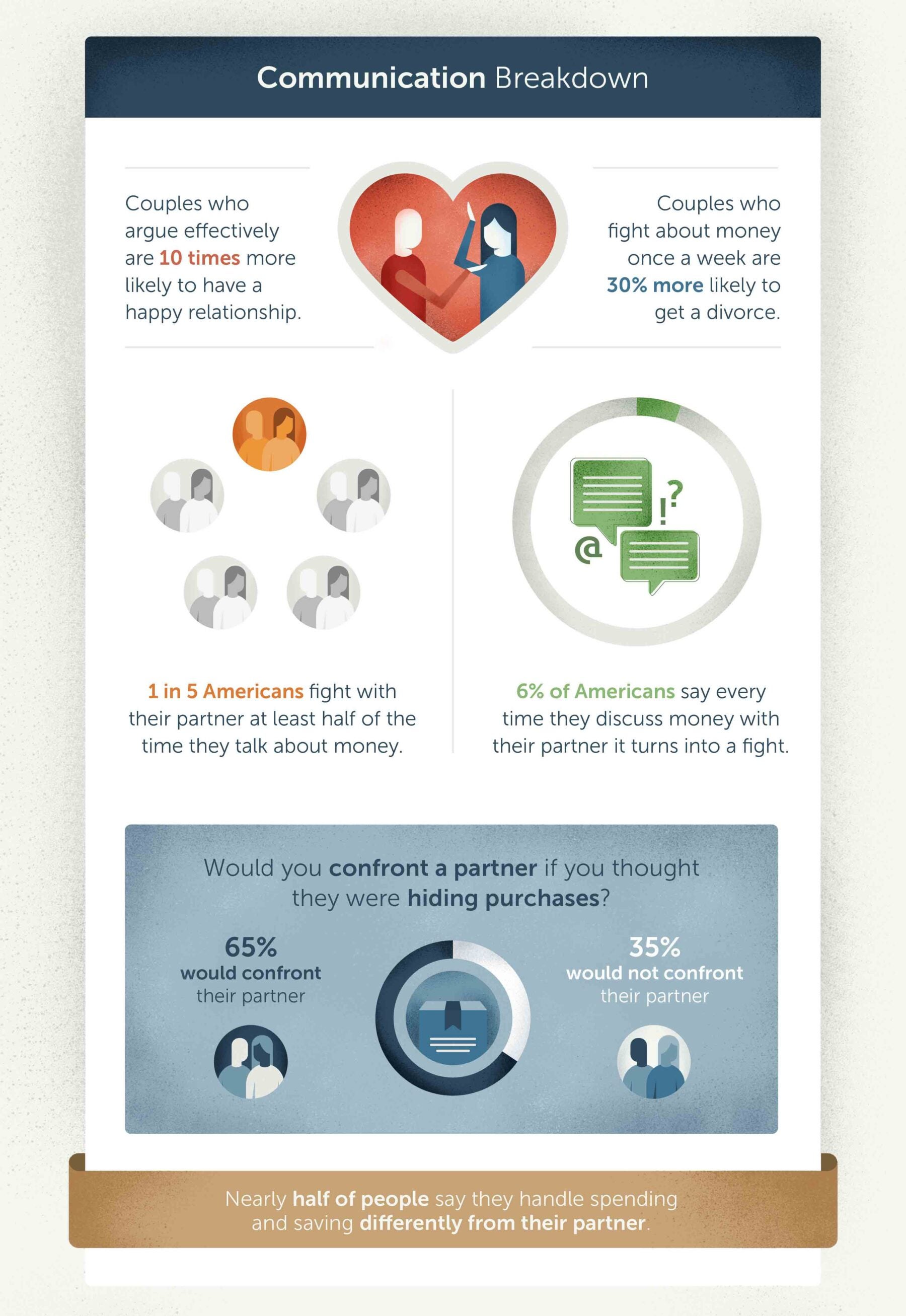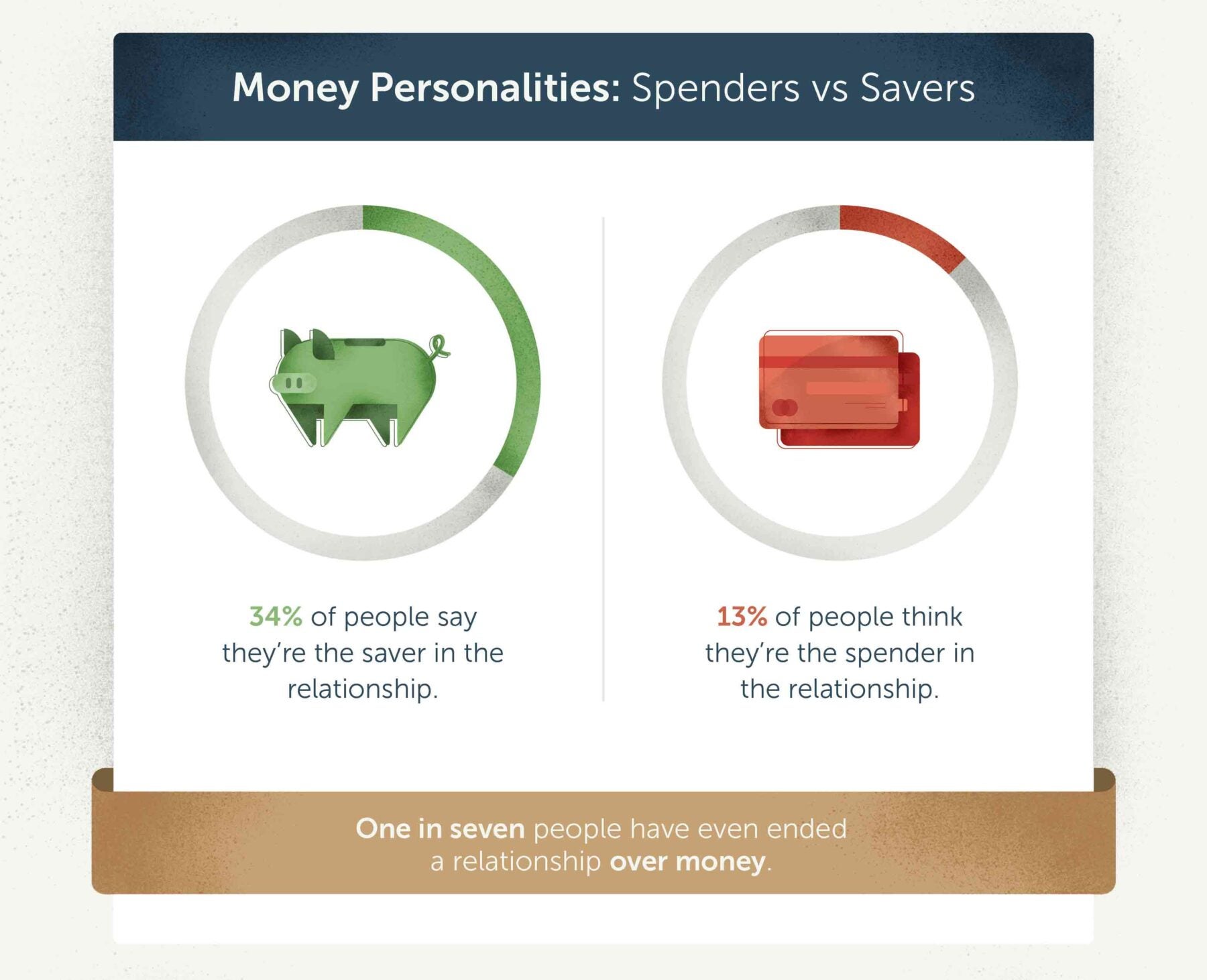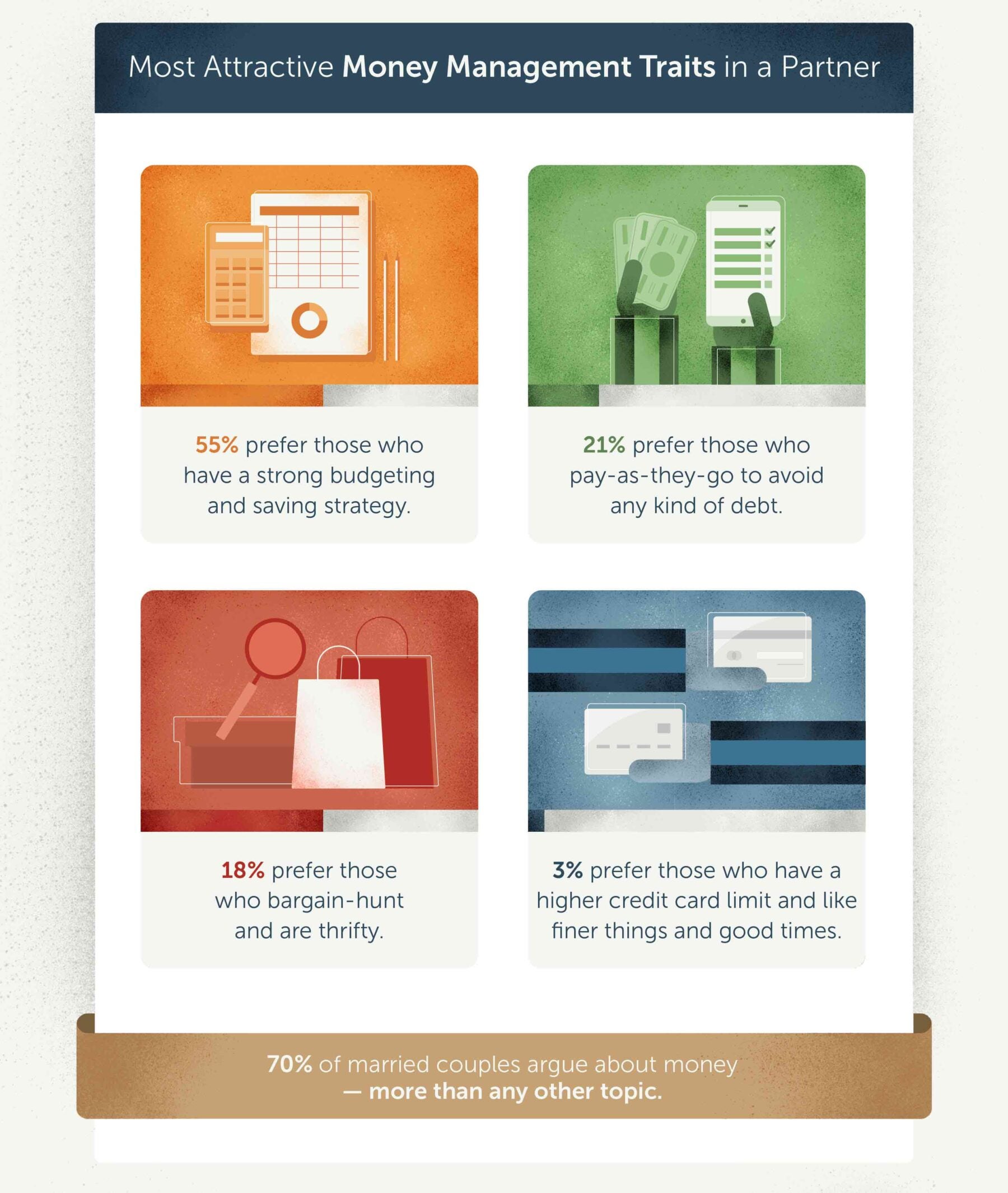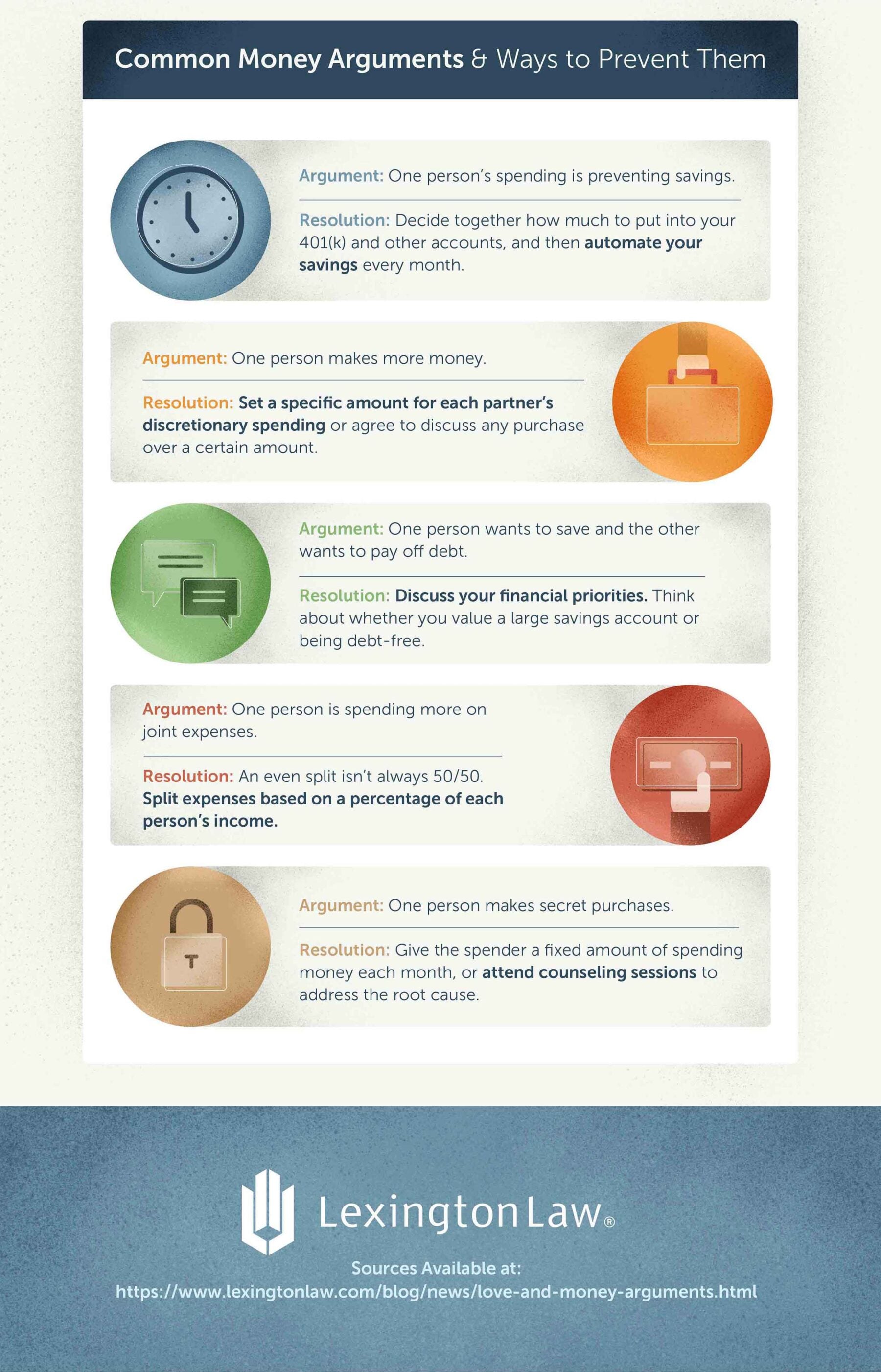
Money is among the top five things that couples fight about — right up there with housework and physical intimacy. A recent study concluded that 35 percent of couples experiencing relationship stress said money was the primary cause of friction. In fact, money is at the root of strain for many Americans, even those not in relationships: According to the American Psychological Association, approximately two-thirds of Americans are experiencing financial stress at least some of the time. It’s no wonder couples can’t help but bicker over financial matters.
Even if you’re smitten with your partner bad money habits can be a deal breaker, unlike other less-than-favorable habits you can overlook. Whether you’re disagreeing over differing spending and saving habits or something more serious such as keeping financial secrets, the source of the conflict is likely rooted in your unique experiences with money.
To find out more about how effective couples are in communicating these issues, we polled 2,000 Americans about how often their discussions about money turn into fights and whether they would be comfortable confronting a partner they suspected of hiding purchases. Here are some of the key takeaways:
- 18 percent of respondents say when they discuss money with a partner it turns into an argument at least half of the time or more.
- 6 percent say every time they discuss money with their significant other it turns into a fight.
- Just over one-third of respondents would not confront a partner about money even if they thought they were hiding purchases.
To learn more about common money arguments and how to prevent them, jump to our infographic below.
Frequency of fighting is a key indicator of relationship health

Some studies have shown that couples who argue together, stay together. While effective arguing is an important skill in a relationship, frequent bickering without resolution can take its toll. Jeffrey Dew of the National Marriage Project says, “Couples who reported disagreeing about finances once a week were over 30 percent more likely to divorce over time than couples who reported disagreeing about finances a few times per month.”
This is especially worrisome given that our survey shows that 1 in 5 couples argue about money at least half the time they bring it up with each other.
Unresolved financial infidelity can harbor resentment

One of the most devastating things in a relationship is infidelity of any sort, but financial infidelity — keeping financial secrets from your spouse or significant other — is a relationship transgression that can be hard to overcome both emotionally and financially. And it may be more common than you think. Reportedly 23 percent of people in relationships have hidden an account from a partner!
Even if you aren’t sure whether your partner is hiding something, the suspicion alone can be stress-inducing, ultimately putting a strain on the relationship. Our survey found that 65 percent of Americans would confront a partner if they thought they were hiding purchases, but that leaves the other 35 percent silently stewing in their suspicions.
The importance of aligning money values
From spending too much on frivolous purchases to not saving enough for the future, the subject matter of financial fights can vary. However, no matter what the surface cause of the argument is, these disagreements often stem from the fact that one person in the relationship is a spender and the other is a saver. Although opposites attract, ideally money should be one of the core tenants in which you and your partner share the same values. Fundamental differences in money personalities can lead to power struggles, trust issues and frequent fights.
Overall, it seems people place a high importance on their financial values, considering 76 percent of respondents in a recent Ally Bank survey said they believe it is of moderate to high importance to find a significant other with a similar philosophy toward money and finances.
Common money arguments and tips for preventing them
Almost all money arguments stem from differing values. Here are some of the common issues couples face.
- You don’t think you’re saving enough. Have a discussion about your respective priorities and adjust your monthly savings accordingly. Decide together how much to put into your 401(k) and other savings accounts, and then automatically put it there every month.
- Your relationship feels unbalanced because one person makes more money. Explain your feelings and try setting a specific amount for each partner’s discretionary spending or agree to discuss any purchase over a certain amount. This way each of you will feel free to spend a certain amount without worrying about what the other may think.
- You feel you’re spending more than your share on joint expenses. Every couple splits expenses differently. You may feel that 50/50 is the only way, but consider talking to your partner about divvying up the monthly expenses based on the percentage of income each of you makes.
- You have a suspicion that your partner is hiding purchases from you. Give the spender a fixed amount of spending money each month, or attend counseling sessions to address the root cause.





Money doesn’t have to be the number one source of conflict in your relationship. It just takes knowing your values and communicating them with your partner. Just make sure both of you are on board! Financial infidelities or a partner living above their means can result in financial messes that can ruin both of partners’ credit scores.
Methodology: This study consists of two survey questions conducted using Google Surveys. The sample consists of no less than 2,000 completed responses per question. Post-stratification weighting has been applied to ensure an accurate and reliable representation of the total population. The survey ran during November 2018.
Sources: American Psychological Association | CentSai | SunTrust Bank | Psychology Today | Ally Bank